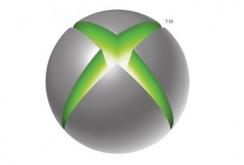 Microsoft's indie-publishing platform, ID@Xbox, sets indies up to expand beyond the PlayStation4 and Wii U ecosystems, and potentially build a viable business and career. The Xbox One is scheduled to launch in November. “[This] is a relief to many,” said Liam Hislop, Full Sail University's Game Development Department Chair, in an interview with Dice News. “The fact that the retail console itself [also can] be used for developing will allow more indie developers the chance to make their own games. For anyone who ever imagined creating their own game, having access to the tools like this may help make their dreams a reality.”
Microsoft's indie-publishing platform, ID@Xbox, sets indies up to expand beyond the PlayStation4 and Wii U ecosystems, and potentially build a viable business and career. The Xbox One is scheduled to launch in November. “[This] is a relief to many,” said Liam Hislop, Full Sail University's Game Development Department Chair, in an interview with Dice News. “The fact that the retail console itself [also can] be used for developing will allow more indie developers the chance to make their own games. For anyone who ever imagined creating their own game, having access to the tools like this may help make their dreams a reality.”
Microsoft Announces Indie-Publishing Platform for Xbox One
Microsoft began taking applications this week for independent game developers who want to self-publish games for its upcoming Xbox One console. While other consoles, such as Sony's PlayStation4 and Nintendo's Wii U already have indie-publishing platforms, game producers have been waiting for Microsoft to make its console more open.  Microsoft's indie-publishing platform, ID@Xbox, sets indies up to expand beyond the PlayStation4 and Wii U ecosystems, and potentially build a viable business and career. The Xbox One is scheduled to launch in November. “[This] is a relief to many,” said Liam Hislop, Full Sail University's Game Development Department Chair, in an interview with Dice News. “The fact that the retail console itself [also can] be used for developing will allow more indie developers the chance to make their own games. For anyone who ever imagined creating their own game, having access to the tools like this may help make their dreams a reality.”
Microsoft's indie-publishing platform, ID@Xbox, sets indies up to expand beyond the PlayStation4 and Wii U ecosystems, and potentially build a viable business and career. The Xbox One is scheduled to launch in November. “[This] is a relief to many,” said Liam Hislop, Full Sail University's Game Development Department Chair, in an interview with Dice News. “The fact that the retail console itself [also can] be used for developing will allow more indie developers the chance to make their own games. For anyone who ever imagined creating their own game, having access to the tools like this may help make their dreams a reality.”
 Microsoft's indie-publishing platform, ID@Xbox, sets indies up to expand beyond the PlayStation4 and Wii U ecosystems, and potentially build a viable business and career. The Xbox One is scheduled to launch in November. “[This] is a relief to many,” said Liam Hislop, Full Sail University's Game Development Department Chair, in an interview with Dice News. “The fact that the retail console itself [also can] be used for developing will allow more indie developers the chance to make their own games. For anyone who ever imagined creating their own game, having access to the tools like this may help make their dreams a reality.”
Microsoft's indie-publishing platform, ID@Xbox, sets indies up to expand beyond the PlayStation4 and Wii U ecosystems, and potentially build a viable business and career. The Xbox One is scheduled to launch in November. “[This] is a relief to many,” said Liam Hislop, Full Sail University's Game Development Department Chair, in an interview with Dice News. “The fact that the retail console itself [also can] be used for developing will allow more indie developers the chance to make their own games. For anyone who ever imagined creating their own game, having access to the tools like this may help make their dreams a reality.”


